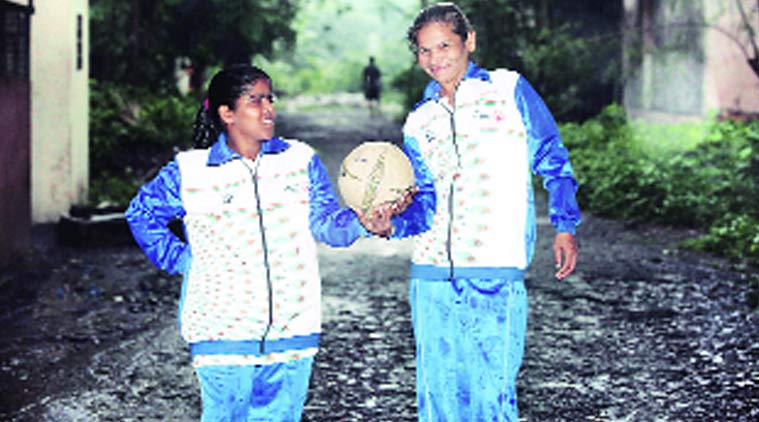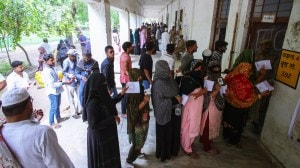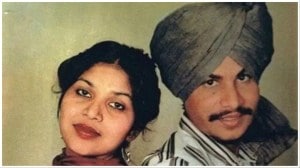- India
- International
Special achievers: Two sportswomen from city win big in Los Angeles Special Olympics
With an intelligence quotient (IQ) less than 70, they do not remember their family and were found abandoned by the police two decades ago.
 Jyoti Sharma (left) and Parveen Barqat. Dilip Kagda
Jyoti Sharma (left) and Parveen Barqat. Dilip KagdaParveen Barqat, 32, and Jyoti Sharma, 27, smile and point towards their certificates, now hanging in the superintendent’s office, showing fourth position in the Special Olympics held at Los Angeles this year. The two were selected from the city as part of a 12-member handball team representing India, making it their first trip abroad since the two started living at the Mankhurd-based home for mentally challenged in 1996.
With an intelligence quotient (IQ) less than 70, they do not remember their family and were found abandoned by the police two decades ago. Barqat was 11-year-old then and Sharma was eight. “The Juvenile Welfare Board (now called the Child Welfare Committee) had placed them under our care since then. Their family could not be traced,” said Child Welfare Officer, Renuka Kadhav.
The government-run home provides training in different sports — cycling, throwball, handball, volleyball and cricket — to 152 girls and 140 boys living there permanently. In 2011, three inmates were selected for the Special Olympics for cycling, handball and throwball category.
Barqat and Sharma are both keen players of basketball and handball. They underwent four selection stages — at taluka, district, state and then national level — to finally bag a position in the Indian team.
“Not every mentally challenged person can be trained in sports. The IQ should atleast be more than 30,” Jadhav said.
Both the women have a brain developed like a five-year-old and have to be taught the same thing daily for the routine work to remain registered in their mind.

According to the shelter home officials, a daily session from 9 am to 10.30 am is dedicated to various sports following which the inmates attend school. “This school is different from others. They are taught how to bathe, how to fold clothes, keep their room clean and how to help those with very low IQ. Their schooling will continue forever,” Jadhav said.
Dressed in a blue suit with matching bindi and hair clips, Barqat discussed with her child-like innocence how she made new friends in the US. “I will meet them again after four years for handball,” she said, adding that she does not talk to boys as they hit her. Sharma, wearing a multi-coloured suit with matching accessories, added that they also “bought purse, skirt, goggles and nail polish. But it is hidden in a locker so that other girls don’t take it away.”
“Training mentally challenged people is very difficult. The instructions have to be repeated again and again. Sometimes they become agitated and calming them down is challenging,” said Tanaji Paul, superintendent of the home. According to Satish Bansode, deputy CEO of juvenile home, Mumbai district, special teachers are appointed to train and teach the students.
tabassum.barnagarwala@expressindia.com
Apr 26: Latest News
- 01
- 02
- 03
- 04
- 05








































